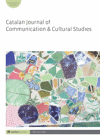
Full text loading...

In the past decade, the strength of populist forces, especially those of the far right, has grown considerably in Europe, influencing European politics and modifying the composition of European institutions, and in particular the European Parliament. This essay posits that populist and non-populist narratives in EU institutions have evolved through the dynamics of polarization and reciprocal influence across multiple crises, from the start of the Great Recession in 2007 to the outbreak of war in Ukraine in 2022. Depending on the results of the upcoming 2024 European elections, and especially in the case of a successful outcome of far-right populist parties, there might be more radical changes in the dominant forces and discourses of EU institutions.

Article metrics loading...

Full text loading...
References


Publication Date:
https://doi.org/10.1386/cjcs_00101_1 Published content will be available immediately after check-out or when it is released in case of a pre-order. Please make sure to be logged in to see all available purchase options.